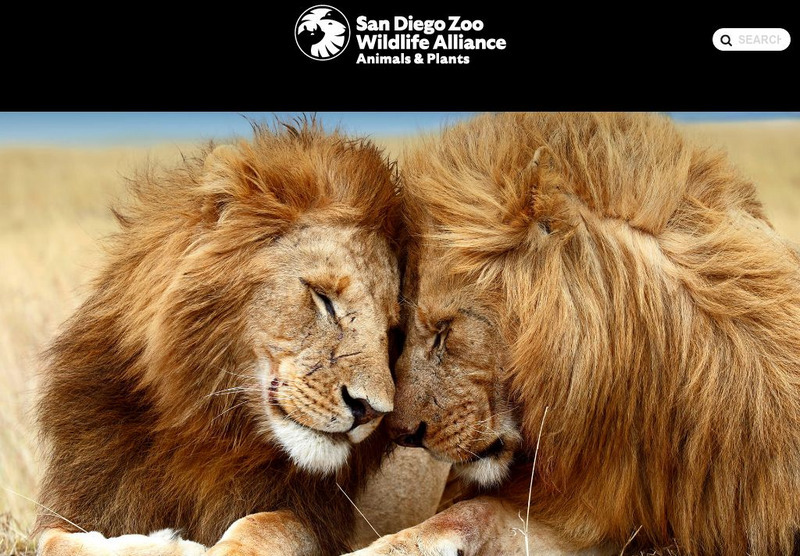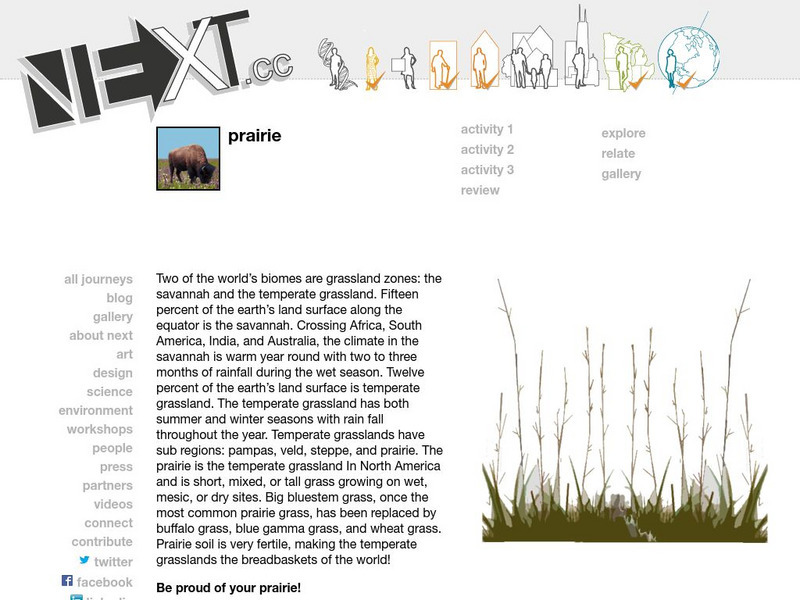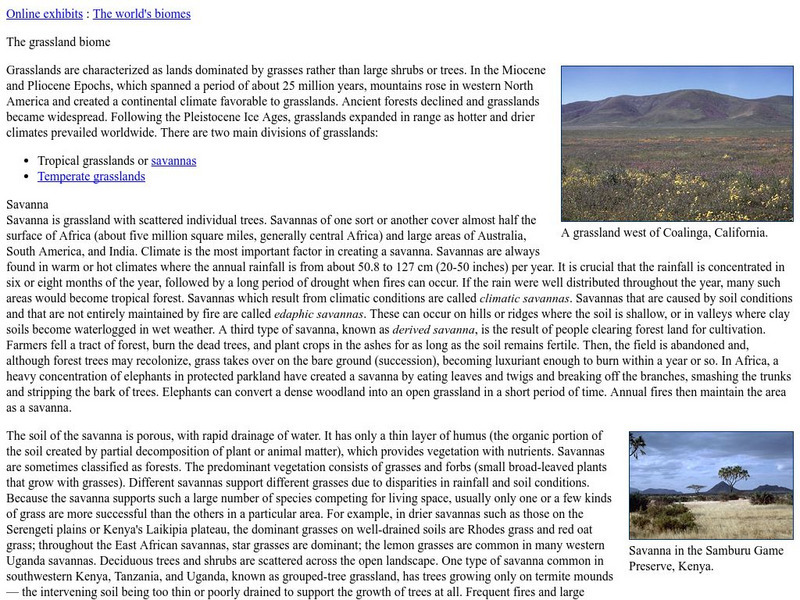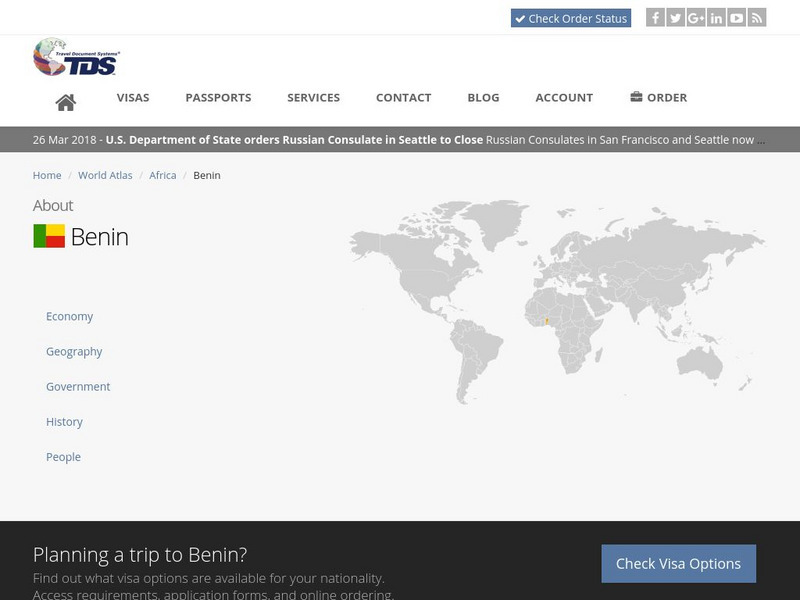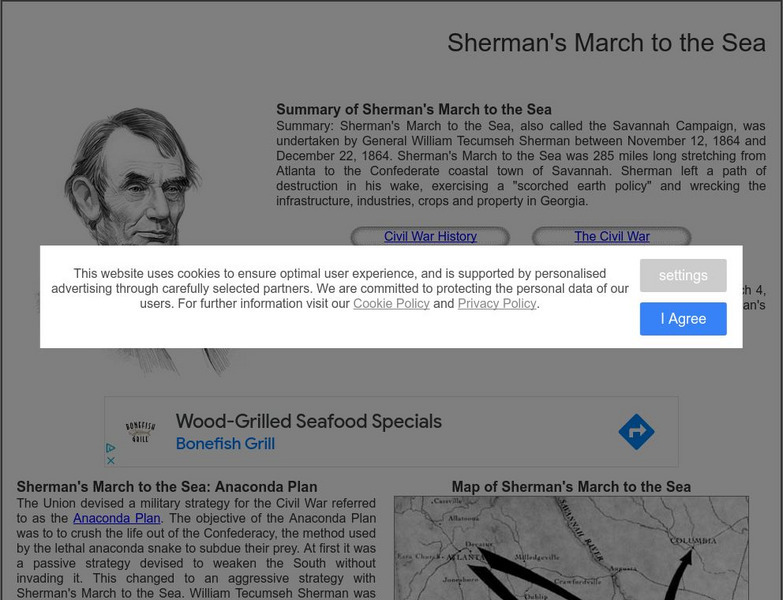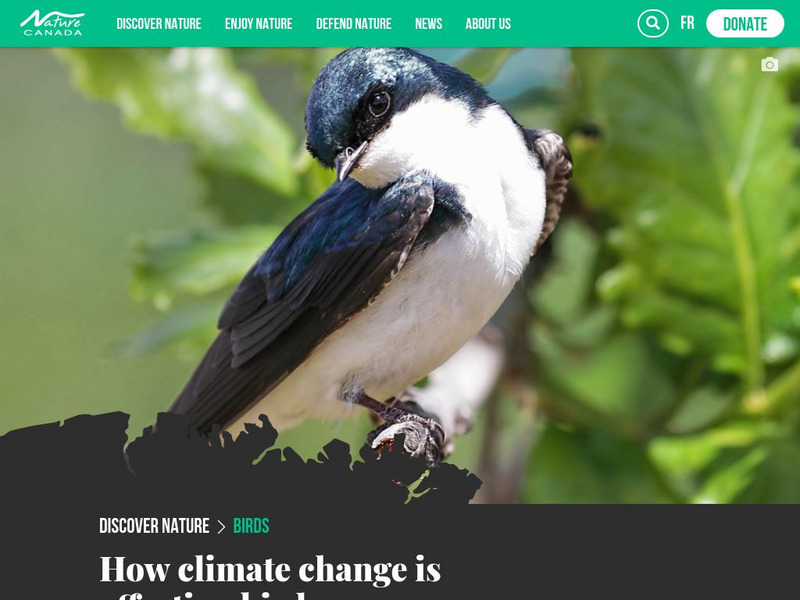PBS
Pbs: Journey to Planet Earth: Seas of Grass
A part of the PBS series "Journey to Planet Earth," this section explores the world's grasslands, some of which are in environmental danger. Includes video and educational resources.
Smithsonian Institution
Smithsonian National Zoo
Here is the National Zoological Park right at our fingertips. Students will find many things to explore at this colorful and engaging site. Any study of animals will have a successful start here. Chances are students can catch their...
San Diego Zoo Global
San Diego Zoo: Lion
This resource provides extensive information about the lion, including several photos and audio clips.
African Wildlife Foundation
African Wildlife Foundation: Cheetah
The African Wildlife Foundation provides a detailed overview of the cheetah. Here you can learn about a cheetah's physical characteristics, behavior, diet, caring for young, predators, and more.
University of Groningen
American History: Outlines: The British Move South
With the French now involved, the British stepped up their efforts in the southern colonies since they felt that most Southerners were Loyalists. A campaign began in late 1778, with the capture of Savannah, Georgia. Shortly thereafter,...
University of Groningen
American History: Outlines: The British Move South
Brief overview of the Revolutionary War in the South including campaigns of Savannah, Charleston and the significant battle at Cowpens, South Carolina.
Bill of Rights Institute
Bill of Rights Institute: Charles Pinckney
Born near Charles Town (now Charleston), South Carolina, Charles Pinckney was the child of a wealthy family. He received a first-rate education and became an accomplished lawyer. Pinckney joined the state militia during the American...
Wonderville Media
Wonderville: Cheetahs
The cheetah is the fastest land animal on the planet. It typically hunts during the day, chasing prey at speeds up to 70 miles per hour. Cheetahs live in eastern and southwestern Africa and parts of the Middle East. They reside in vast...
National Center for Ecological Analysis and Synthesis, University of California Santa Barbara
Kids Do Ecology: Savanna
Learn where savannas are located! Other information at the site from the National Center for Ecological Analysis and Synthesis includes grassland weather, plants, animals, people, and more.
Sophia Learning
Sophia: Savannas
A quick overview of the Savanna biome, including a description of the wildlife and climate there.
Other
Sawac: Who Needs Grasslands?
This site from the Southern African Water Crisis addresses some myths and misconceptions of grasslands and explores why the grasslands are so vital for South Africa and the world.
Other
Center for History and News: William T. Sherman: Most Reckless Civil War General
Are we right to remember General Sherman as the villain of the Civil War? Read another view of the famous march to the sea.
Other
Southern African Water Crisis: Some Grassland Facts
Here you can read a fact sheet on South African grasslands. Content includes a look at origins, water supply, plants and animals, economics, and current conservation status.
The Wild Classroom
The Wild Classroom: Biomes of the World: Tropical Savanna Biome
Learn all about the Tropical Savanna biome. Find out about plants, animals, adaptations, and conservation efforts.
Next.cc
Next: Prairie
Complete these three activities to learn about prairies and where they are located. Includes links to explore related material.
Missouri Botanical Garden
Missouri Botanical Garden: Grassland Animals
This site from the Evergreen Project of the Missouri Botanical Garden provides great information. Click on the animal link on the left. There is an introduction to animals in the grasslands, and then you can read more about each...
University of California
Ucmp: The Grassland Biome
A good site to begin your study of grasslands as it gives clear definitions of terms and an explanation of how the grasslands came into existence.
Center for Educational Technologies
Wheeling Jesuit University: Arctic Tundra Biome
Provides text and pictures on the arctic tundra, its animals, plants, and their adaptations.
Other
Western North Carolina Vitality Index: River Basins
Ten river basins drain about 11,459 square miles in Western North Carolina. The New River, in the northeast corner of the region, is thought to be one of the oldest in the world.
Travel Document Systems
Tds: Benin: Geography
Read about the geography, climate, and wildlife of Benin in this article with information from the U.S. State Dept. Background Notes.
Travel Document Systems
Tds: Ghana: Geography
Read about Ghana's geography and climate. Did you know the largest man-made lake is in Ghana? Information from the CIA World Fact Book.
Travel Document Systems
Tds: Uganda: Geography
A brief look at the physical environment of Uganda including its location, terrain, physical features, and climate. Information is from the CIA World Fact Book.
Siteseen
Siteseen: Civil Conflict: Sherman's March to the Sea
Web page on the major events and definitions of Sherman's March to the Sea, with a number of learning resources including text, video [2:59], map and fun facts for kids.
Nature Canada
Nature Canada: How Is Climate Change Affecting Birds?
An in-depth look at how climate change is affecting Canadian birds. The site looks at how bird distribution, abundance, behavior, even genetic composition are all being altered due to climate change.
Other popular searches
- African Savannahs
- African Savannah Animals
- Savannah River Holiday
- African Savannah Food Chain
- African Savannah Art
- East African Savannah
- Eric Carle African Savannah
- African Savannahs Mural
- Prairies and Savannah
- Eric Carlee African Savannah
- Savannah Georgia
- Savannah Habitats


